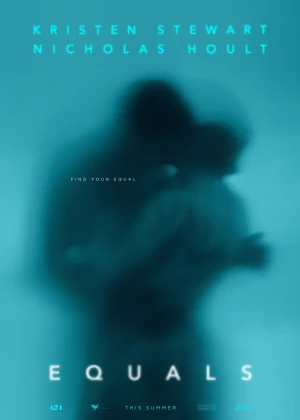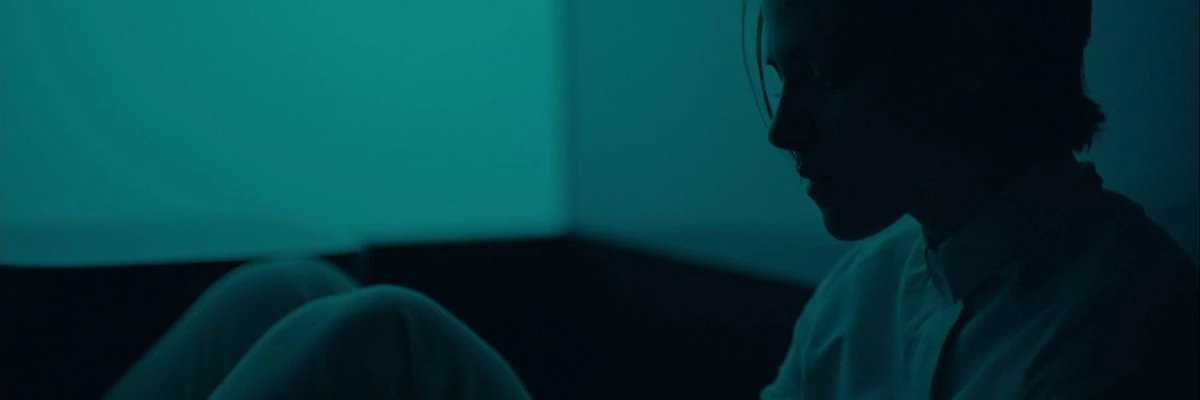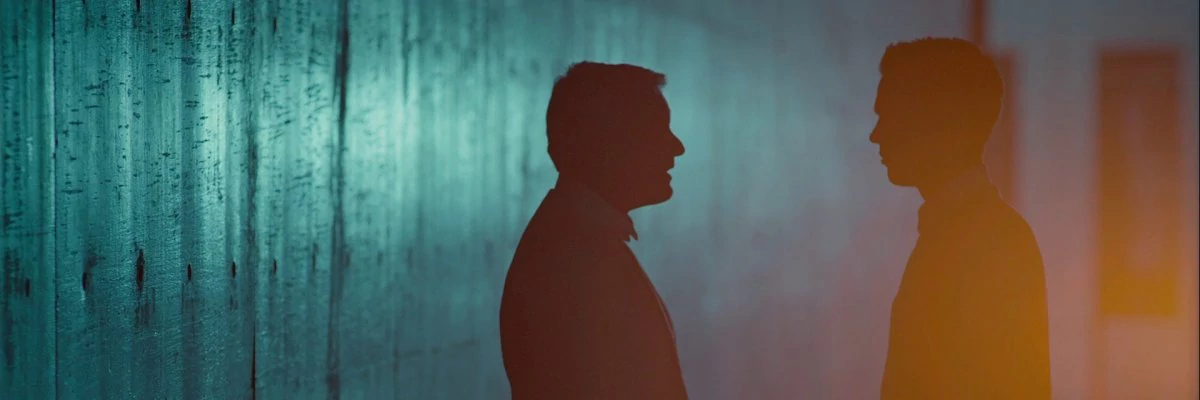Equals

After discovering Drake Doremus a couple of years ago, I've been slowly catching up with his oeuvre. He's one of America's biggest directorial talents and even though he's worked with an impressive slate of actors, he's remained somewhat under the radar. From the films I hadn't seen yet, Equals was by far the one that looked the most appealing. It promised a mix of sci-fi and romance, a fruitful combination that had already blown me away in Zoe. Equals turned out to be a tad more conceptual still, but all Doremus' usual signature traits are present, making it my personal favorite so far.

Beware though, at its core Equals is a romantic drama. While you'll be dealing with quite a bit of sci-fi, the futuristic world and its many rules are merely a lens that frames and restricts the core romance. It may be a bit disappointing for people expecting a more straight-forward sci-fi film, but that's simply not what the films of Doremus are about. He put a strong focus on his central characters and uses external drama to probe and asses the impact on their relationships. In this case, those external influences tend to be more conceptual in nature, which makes sci-fi an ideal secondary genre.
Equals takes place in a world that has chosen to eradicate human emotion by tweaking our DNA. People grow up living perfectly stable but emotionless lives, which has created a near-perfect society. But some people still relapse (referred to as Switched-On Syndrome or SOS), an affliction that is seen as an incurable disease. People who are affected go through 4 stages, which many of them killing themselves along the way, unable to deal with the roller coaster of emotions that washes over them. It's not the most original setup, but it makes for an intriguing premise that perfectly services Doremus' themes.
The film revolves around Silas, a visual artist who works for a renowned company. When a jumper (suicide) interrupts his day, Silas notices that Nia, one of his colleagues, seems to be affected by the event. Even though she hides it well, subtle differences in her body language give her away. It unlocks something in Silas, who begins to develop feelings for Nia. Silas isn't used to dealing with emotions and it doesn't take long before he's diagnosed with stage 1 SOS. He goes into treatment, but a late-night encounter with Nia is about to change his entire perspective on the world he's lived in for his entire life.

Equals looked exactly the way I expected it to look. That's maybe a little disappointing, as nothing beats a positive surprise. On the other hand, Doremus is known for his lavish visuals, so what's there to complain about really. Doremus' vision of the future is very stark and clean, featuring sleek, modern architecture, a complete absence of clutter and cool blue hues. But as the story progresses and emotion is slowly seeping into the film, an increasing amount of red is added to the color palette and the camera work becomes more dynamic and personal. Not unexpected, but stunning nonetheless.
The soundtrack has a few more surprises in store. Not so much the use of classical music, or the ethereal-sounding ambient that gives the film a very subdued and soothing atmosphere. That's very much a given for this type of film. What I didn't expect was a rawer, crunchier sound that injected a handful of ambient tracks with a little more bite. The music underneath the first love scene in particular was absolutely spectacular, demonstrating that unexpected musical pairings can have a much bigger impact than merely sticking with what is known to work. Equal's soundtrack is exemplary and essential to the success of the film.
The casting is also top-notch (and particularly smart). Kirsten Stewart is generally known as an actress who isn't very emotive (nonsense if you ask me, but within the context of Western cinema the critique is understandable), a skill that comes in handy here. Nicholas Hoult has a tougher time constraining his emotions, but gets a helping hand from the plot. The tension between the two is electric, though they're definitely helped by Doremus' intimate direction. The secondary cast is decent (with a remarkable role for Guy Pearce), but not very outspoken.

On the surface, Equals neatly conforms to standard sci-fi conventions. The audience is introduced to a dystopian future (though one that was created with the best intentions) which proves unsustainable over time. Simplify it even further and you get a basic "love conquers all" story with a little Romeo & Juliet thrown in for good measure. Doremus' approach is cleaner and the focus on romance is unusual, but if that's all you're seeing then the film is indeed a bit light. In that sense I get some negative critiques this film's been getting, even so that doesn't mean I feel they're fair.
What struck me the most about Equals is that it starts from a situation where (almost) everyone is okay with the world they're living in. There's no repressive regime or obvious bad guy, just a world that got rid of human emotions in the hope humanity would thrive. From that point of view, it's very interesting to see that some "sick" people dislike the emotions they're experiencing and voice their preference for a life without emotion. This says a lot about how humanity reacts to (new) things that threaten to upset the status quo, even things we have come to see as definitive of our species. Exactly the kind of critical insight I love to see in sci-fi cinema.
When Doremus ventures into genre territory, he hits my sweet spot. This is genre cinema with the signature of an auteur, mood cinema with smarts and depth. Lush visuals, a superb soundtrack and slick performances only make it better. Not everyone will appreciate Doremus' contemporary style, nor the way he deviates from established genre clichés, but this only adds to the uniqueness of Equals. This is my favorite Doremus so far and it establishes him as one of my favorite contemporary US directors. Let's just hope the rest of the world doesn't take too long to catch on.